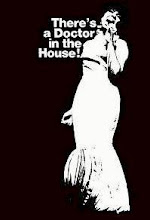His is a name that needs no introduction, and so I won't give any. Just some words about his early years.
He grew up in Baltimore, and his first language was Yiddish. His neighborhood was mainly Polish and Italian, with many Jews and blacks around. Jerry was one of the »Jewboys«. Aged 12, he moved to L.A. with his mother and sister. All was to begin there, and it was there that he teamed up with Mike Stoller. They had their first record out in 1951.
In memoriam of Jerry Leiber I thought I might play today three songs: words by Jerry, music by Mike. The framed photo above shows them both seated at the piano; standing behind, Jerry Wexler from Atlantic (2nd from left) and the Coasters.
Actually, Leiber & Stoller did not produce many songs over the decades, but almost all of them charted. Two of the most famous, and most widely covered over the years, are »Kansas City (Here I Come)« and »Hound Dog«. Equally popular are some tunes they wrote (or co-wrote) for the Drifters during the '60s, such as »On Broadway«.
Shirley Ellis: »Kansas City« from the Congress LP »The Name Game« (1965, mono):
all, Jerry Leiber was a song-seller, not a moralist. In the following, you can hear
the rather unlikely cha cha cha-version of the song as recorded by Betty Everett in October 1963. Good thing is that Betty's version has the original lyrics. The song title is given as »Hounddog« on the cover, as »Hound Dog« on the label of Side 1.
Betty Everett: »Hound Dog« from the Vee-Jay LP # 1077 (second release) »It's In His Kiss« (1964):
On Broadway. One of the best-known songs of the Drifters. This tune was originally composed by Barry Mann and Cynthia Weil. Mann had it conceived as »a Gersh- winesque kind of melody« (Ken Emerson: Always Magic in the Air. The Bomp and Brilliance of the Brill Building Era, London - New York 2005, p. 137), and Weil added the lyrics because she was infatuated with Broadway. However, the song eventually wasn't satisfying. So in January 1963, Mann & Weil took the song to Leiber & Stoller. They re-wrote it to a great extent, thus earning their credits. The version you can listen to in the following was recorded in the Uptown Theatre of Philadelphia on July 24, 1964, and released on Atlantic LP # # 8101 (Saturday Night At The Uptown) later that year. It certainly is the most unusual version of the song you are likely to hear: apart from the excitement of the crowd, the song is done »properly« in the first part, but gradually slips into an ad-hoc group improvisation in the second part. During their performance, the Drifters at one point change »Broadway« into »Broad Street«, »in honor of the Philadelphia thoroughfare« as the notes on the back cover duly remark.
The Drifters: »On Broadway« (live) from the Atlantic LP »Saturday Night At The Uptown« (1964):















No comments:
Post a Comment